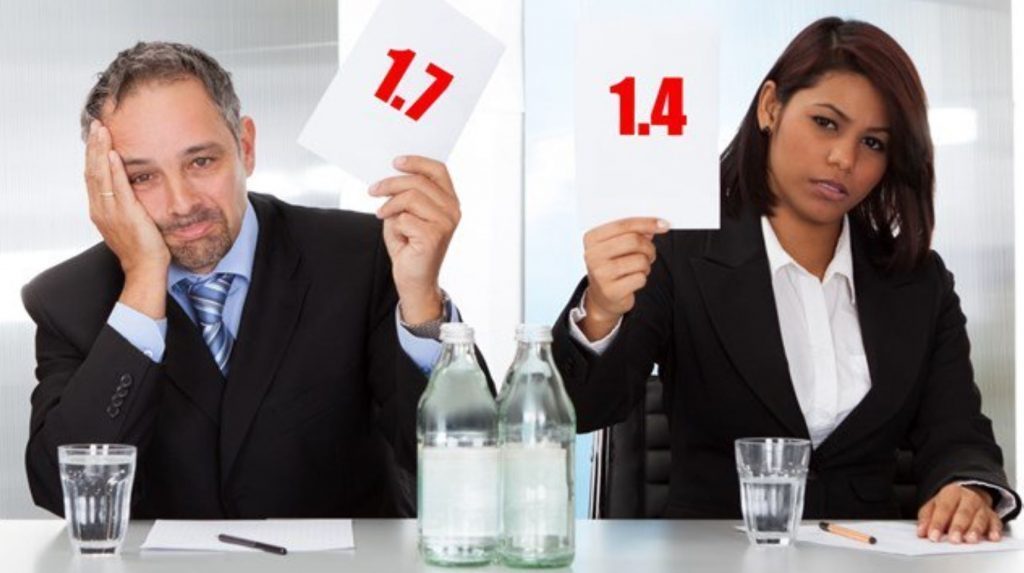I was turned on to the Netflix series Black Mirror a few months after the first season was released. If you started with Season 1, Episode 1 – “The National Anthem” – as I did, you instantly knew this was a different kind of show. The four seasons that followed have, for the most part, been good. There have been some “misses” but nothing’s gonna be perfect. Season 3, Episode 1 – “Nosedive” – which dropped on October 21, 2016 was not one of those “misses,” but, instead an instant favorite among fans. And now, only four years later, I would argue that the premise of the episode is quickly becoming reality.
For those who have not seen the episode or need a refresher, the premise of “Nosedive” is that social media’s system of approval has entered into real life. The “like” or  ︎ response used to approve or disapprove of a post someone shares is now used to rate everyone according to their behavior, not just posts. Every interaction you have with another human can be rated and affects a social credit score that everyone can view. If you’re rude to the barista at the local coffee shop, he/she can ding you. And if your score lowers beyond a certain level, you begin to lose “privileges” such as your house in a “good” neighborhood or access to stores and transportation. Your score can even impact friends and family around you. You wouldn’t be able to have the proverbial “bad day” without risking your very livelihood. The overarching message here is that given this social pressure, society as a whole would improve as those who possess low scores would be shunned at all costs.
︎ response used to approve or disapprove of a post someone shares is now used to rate everyone according to their behavior, not just posts. Every interaction you have with another human can be rated and affects a social credit score that everyone can view. If you’re rude to the barista at the local coffee shop, he/she can ding you. And if your score lowers beyond a certain level, you begin to lose “privileges” such as your house in a “good” neighborhood or access to stores and transportation. Your score can even impact friends and family around you. You wouldn’t be able to have the proverbial “bad day” without risking your very livelihood. The overarching message here is that given this social pressure, society as a whole would improve as those who possess low scores would be shunned at all costs.
As odd and far-fetched as this all sounds, China has had something similar since 2009 which, I assume, is from where the writers of “Nosedive,” Rashida Jones and Michael Schur, drew their inspiration. But I’m going to make the argument that while most didn’t believe that could happen in the US, the last year has trained the US population for a system similar to that which is presented in “Nosedive.” When you consider that the “Karen” phenomenon isn’t even mentioned anymore, – because it’s been normalized – and that retail workers have been co-opted into law enforcement roles, (mask compliance, taking personal information if you are purchasing a money order) it is not conspiratorial to think that this is training us for a future system like the one laid out in “Nosedive.”
What better way for someone to be “mask compliant” than a random stranger “down-voting” them for wearing their mask below their nose. Or, how about getting too close to someone in the line to check luggage at the airport (when you’ll be sitting a foot apart on the plane?). It is easy for us to have this dystopian view of the future where the State is able to spy on us in a panopticon-like hell. I wonder how many have stopped to examine the last twelve months and wondered if it will be the everyday person next to us – the cashier in the grocery store, or our children living under the same roof who is going to hold more power over us than any politician could ever imagine.
Source: Substack
Peter Quinones is the editor at The Libertarian Institute and host of the Freeman Beyond The Wall podcast. Support him on Patreon.
Become a Patron!
Or support us at SubscribeStar
Donate cryptocurrency HERE
Subscribe to Activist Post for truth, peace, and freedom news. Follow us on Telegram, SoMee, HIVE, Flote, Minds, MeWe, Twitter, Gab and Ruqqus.
Provide, Protect and Profit from what’s coming! Get a free issue of Counter Markets today.
The “Social Credit Score” Is Coming — The Villain May Be In Your Home
